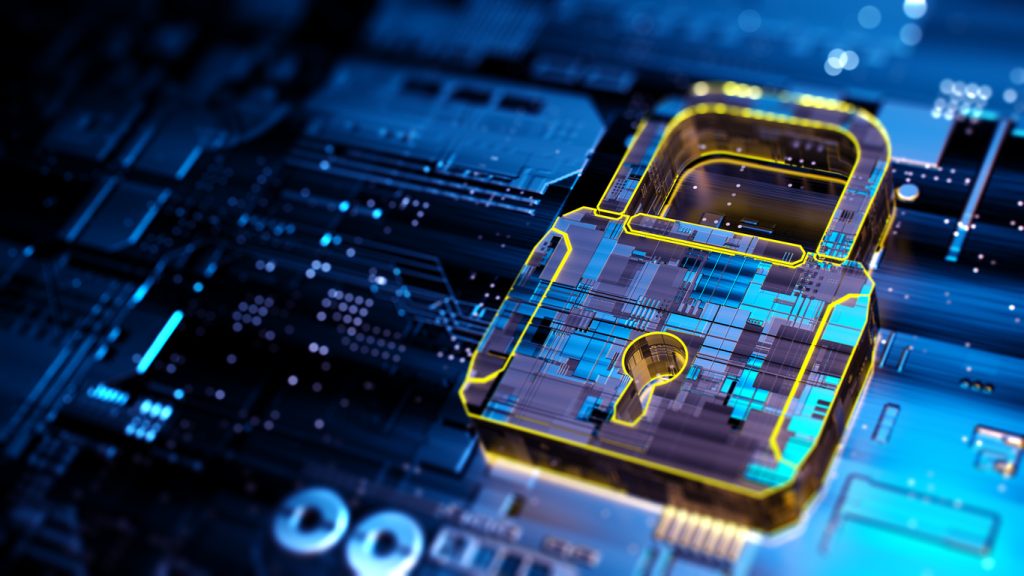DeFi (Decentralized Finance) has experienced explosive growth, bringing new opportunities and risks. As the ecosystem matures, the importance of comprehensive risk assessment and monitoring becomes paramount. DeFi analytics platforms and security tools play a crucial role in providing insights and protecting against potential threats. Let’s explore how these tools enhance risk assessment and monitoring in the DeFi space.
DeFi Analytics: Understanding the Landscape
Overview of DeFi Analytics Platforms
DeFi analytics platforms offer a comprehensive view of the ecosystem by aggregating and analyzing data from various protocols and blockchains. These platforms provide key metrics, charts, and visualizations that help users gain insights into liquidity, trading volumes, token performance, and more.
Key Metrics and Data Sources for Analysis
DeFi analytics platforms utilize a wide range of data sources, including on-chain data, decentralized exchanges (DEXs), lending protocols, and market data. Key metrics such as total value locked (TVL), trading volumes, liquidity pools, and token prices are monitored to assess the health and performance of the DeFi ecosystem.
Real-time Market Data Analysis
DeFi analytics platforms provide real-time market data analysis, allowing users to track price movements, trading volumes, and liquidity changes across various protocols. This information helps users identify market trends, assess the overall health of the DeFi ecosystem, and make data-driven investment decisions.
Risk Scoring and Portfolio Management
DeFi analytics platforms often offer risk scoring tools that assess the risk level associated with different protocols and assets. These risk scores consider factors such as smart contract audits, historical performance, and liquidity. By utilizing risk scoring, users can make informed decisions about portfolio diversification and risk management strategies.
Historical Performance Analysis
Analyzing the historical performance of DeFi protocols is crucial for assessing their track record and stability. Analytics platforms provide insights into the historical data of protocols, including returns, volatility, and other relevant metrics. This information allows users to evaluate the performance of different protocols over time and make informed investment decisions.
Benefits of Using Analytics for Risk Assessment
By leveraging DeFi analytics, users can make informed decisions and assess risks effectively. Analytics enable users to evaluate the liquidity and market dynamics of protocols, identify potential vulnerabilities in smart contracts, and monitor market trends. This data-driven approach enhances risk assessment and helps users navigate the complexities of the DeFi landscape.
Enhancing Risk Assessment in DeFi
- Analyzing Liquidity and Market Dynamics
Understanding liquidity is crucial in DeFi. Analytics platforms provide insights into liquidity pools, trading volumes, and price slippage. This information helps assess the depth and stability of markets, enabling users to make informed trading decisions and manage risks associated with liquidity.
- Evaluating Smart Contract Security
Smart contract vulnerabilities can pose significant risks in DeFi. Analytics platforms can assess the security of smart contracts by conducting code audits, analyzing contract interactions, and identifying potential weaknesses. This evaluation allows users to avoid protocols with high-risk smart contracts and prioritize security in their investment decisions.
- Monitoring Token Performance and Market Trends
Analyzing token performance and market trends is essential for risk assessment in DeFi. Analytics platforms provide real-time data on token prices, trading volumes, and market capitalization. By monitoring these metrics, users can identify potential market trends, assess project viability, and manage risks associated with volatile markets.
- Smart Contract Insurance
Smart contract insurance is an emerging trend in DeFi that aims to protect users against potential vulnerabilities and exploits in smart contracts. Insurance protocols provide coverage for smart contract failures, hacks, and other risks, offering users an added layer of protection and mitigating the financial impact of potential security breaches.
- Automated Risk Scoring Models
To enhance risk assessment efficiency, automated risk scoring models can be employed. These models utilize algorithms and machine learning techniques to analyze various risk factors, such as liquidity, market volatility, and smart contract audits. By automating the risk scoring process, users can quickly evaluate the risk associated with different DeFi protocols and make informed investment decisions.
DeFi Security Tools: Protecting Against Threats

Importance of Security in DeFi
Security is a critical aspect of DeFi due to the potential for exploits and attacks. As the value locked in DeFi protocols increases, so does the attractiveness for malicious actors. It is imperative to prioritize security measures to protect users’ funds and maintain the trust within the ecosystem.
Overview of DeFi Security Tools and Services
DeFi security tools and services are designed to identify vulnerabilities, mitigate risks, and enhance the overall security posture of the ecosystem. These tools include code audits, bug bounties, penetration testing, and formal verification. Security-focused companies and auditors offer their expertise to ensure the integrity and resilience of DeFi protocols.
Role of Audits, Bug Bounties, and Penetration Testing
Code audits play a crucial role in identifying potential vulnerabilities in smart contracts. Qualified auditors review the codebase, identify security loopholes, and provide recommendations for improvement. Bug bounties incentivize security researchers to uncover vulnerabilities by offering rewards for identifying and reporting them. Penetration testing involves simulating real-world attacks to assess the robustness of the system and identify potential security weaknesses.
Decentralized Governance and Security
Decentralized governance plays a crucial role in enhancing security in DeFi. Many DeFi protocols utilize decentralized governance mechanisms, allowing token holders to participate in decision-making processes. Through voting and consensus mechanisms, community members can collectively address security concerns, propose security upgrades, and enforce security measures to protect the ecosystem.
Secure Wallet Integration
Security tools in DeFi also focus on wallet integration to ensure the safe storage and management of funds. Hardware wallets, multi-signature wallets, and other secure wallet solutions are integrated with DeFi platforms to provide users with enhanced security and protection against unauthorized access or theft. By using secure wallets, users can have greater peace of mind while engaging in DeFi activities.
User Education and Security Awareness
Promoting user education and security awareness is an integral part of DeFi security. DeFi projects and platforms should prioritize educating their users about security.
Monitoring and Early Warning Systems
Implementing Monitoring Solutions in DeFi
Monitoring solutions are essential for identifying and addressing potential risks in real-time. These systems continuously track network activity, smart contract transactions, and other relevant metrics. By implementing effective monitoring tools, developers and users can quickly detect anomalies, suspicious activities, and potential security breaches.
Identifying Anomalies and Potential Risks
Monitoring tools allow for the identification of anomalies and deviations from normal behavior within the DeFi ecosystem. Unusual patterns, unexpected transaction volumes, or abnormal smart contract interactions can indicate potential risks. Early detection of such anomalies enables prompt action to mitigate potential threats and protect user funds.
Leveraging Decentralized Oracle Networks for Real-time Data
Decentralized oracle networks provide external data to the DeFi ecosystem, enabling real-time monitoring and risk assessment. Oracles supply information such as asset prices, market data, and other critical metrics required for accurate risk evaluation. By relying on decentralized oracles, DeFi platforms can ensure the integrity and reliability of the data used for risk assessment and decision-making.
Threat Intelligence and Security Alerts
Monitoring tools can incorporate threat intelligence feeds and security alerts to provide real-time updates on potential security threats and vulnerabilities in the DeFi ecosystem. These feeds aggregate information from various sources, including security researchers, to alert users and platform operators about emerging risks. By leveraging threat intelligence and security alerts, proactive measures can be taken to mitigate potential security incidents.
Social Sentiment Analysis
In addition to technical monitoring, social sentiment analysis can be employed to assess the reputation and perception of DeFi projects. By monitoring social media platforms and online communities, sentiment analysis tools can identify positive or negative sentiment towards specific protocols. This information can help users gauge market sentiment and potential risks associated with a project.
The Future of DeFi Analytics and Security
Advancements in Data Analysis and Risk Modeling
As the DeFi ecosystem evolves, advancements in data analysis techniques and risk modeling will continue to enhance risk assessment capabilities. Machine learning algorithms, artificial intelligence, and predictive modeling will enable more accurate risk identification, helping users make informed decisions and proactively manage potential threats.
Integration of Artificial Intelligence and Machine Learning
The integration of artificial intelligence (AI) and machine learning (ML) in DeFi analytics and security tools holds great potential. AI-powered algorithms can analyze vast amounts of data, detect patterns, and identify potential security vulnerabilities. ML models can help predict and prevent security incidents by learning from historical data and real-time monitoring.
Collaborative Efforts to Improve Security Standards
The DeFi community recognizes the importance of collaboration and knowledge-sharing to improve security standards. Developers, auditors, researchers, and users actively contribute to open-source projects, conduct security reviews, and share best practices. This collaborative approach fosters a strong security culture within the DeFi ecosystem and drives continuous improvement in security measures.
Conclusion
DeFi analytics and security tools are indispensable for enhancing risk assessment and monitoring in the rapidly evolving DeFi landscape. By leveraging analytics platforms, conducting code audits, implementing monitoring solutions, and integrating cutting-edge technologies, users can navigate the complex DeFi ecosystem with greater confidence and security. As the industry continues to mature, a proactive and collaborative approach to security will ensure the long-term sustainability and resilience of decentralized finance.
I have over 10 years of experience in the Crypto industry and I have written dozens of articles on the subject. I am one of the leading experts in Cryptocurrency and my work has been featured in major publications such as Forbes, CoinDesk, and Bitcoin Magazine. I am also a regular contributor to CoinTelegraph and have been interviewed by numerous media outlets including CNBC, Bloomberg, and The Wall Street Journal. In addition to my writing, I am also an active investor in the space and have made successful investments in a number of projects including Ethereum, Bitcoin, and Litecoin.

